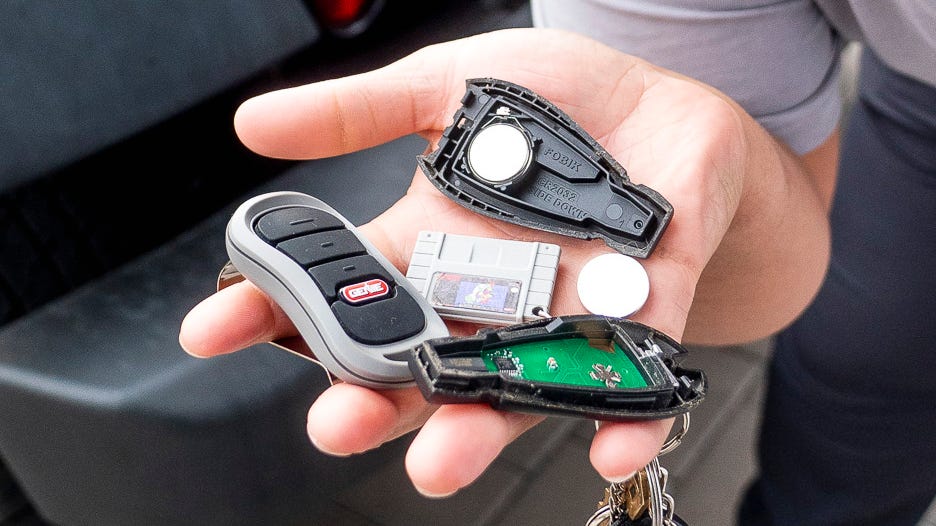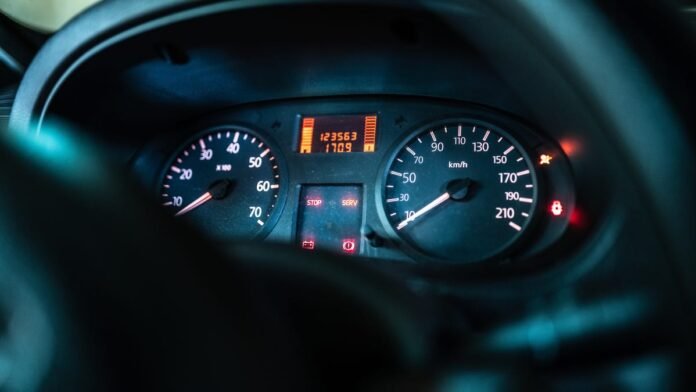
How to save money on car repairs
You don’t need a mechanic for everything. Here are ten simple car repairs you can handle yourself.
- Per AutoZone, there are several reasons why your car’s AC may not be blowing cold air. Leaks and compressor issues are two of the most common problems.
- Some problems can be easily fixed while others may require a trip to the mechanic.
A vehicle in the summer can get incredibly dangerous, incredibly fast.
Inside a car, the temperature can rise 20 degrees in 10 seconds. If it is 90 degrees Fahrenheit outside, it’s possible that the inside could skyrocket to almost 140 degrees in an hour. Even at just 60 degrees, the inside temperature can reach up to 110 degrees.
With that being said, the last thing that you want during the hot summer months is a car with no air conditioning. So, if you previously flipped on your AC and warm air came out of the vent, it makes sense that you immediately turned to the internet to find a solution.
According to AutoZone, there are a variety of reasons that your AC may not be working. Leaks and compressor issues are two of the most common problems. Fixing these issues can range from cheap, quick DIY solutions to a hefty bill at the mechanic.
If you’ve been asking yourself, “Why is my car blowing hot air?”, here is everything you need to know.
How does my car’s AC work?
Before attempting to determine the problem with your vehicle’s air conditioning, you may want to obtain a quick understanding of how it works in the first place. Contrary to what you might believe, air conditioning systems do not create cool air, says AutoZone. Instead, they cool the air by removing hot air and moisture.
Basically, when you turn on your AC, refrigerant flows through the system and absorbs heat from your vehicle’s cabin, where it’s removed through a series of parts and processes. The heat is then released into the atmosphere, and the process repeats itself.
Why is my car blowing hot air?
There are several reasons why your AC may be blowing warm air instead of cool air. Some possibilities include:
- Insufficient airflow in the cabin: This could be a problem with a bad blower motor, but more commonly a plugged cabin air filter.
- Not enough refrigerant: The gas that circulates through the system can leak.
- The compressor may not be cycling: A clutch issue or a compressor failure can prevent the air conditioning system from being able to disperse the heat that was absorbed by the refrigerant.
- The expansion valve is clogged: A blockage in the expansion valve could mean that cooled refrigerant can’t circulate back to the cabin.
- The radiator is blocked: Debris blocking the condenser — mounted behind the radiator — could make it impossible for the heated refrigerant to cool effectively.
- Electrical issues: Electrical connections could be loose or damaged, or a part — such as the HVAC control — may not be working well.
Diagnosing and fixing the issue
Depending on the issue, you may be able to diagnose and fix it yourself. Here are some possible steps you can take to achieve a quick fix:
- Check the condition of the cabin air filter and replace it if it’s dirty or clogged.
- Check that the heater fan is blowing. If it’s only blowing on high speed, the blower motor resister might be faulty or a fuse might be blown.
- Clean off the radiator. If it’s plugged with debris, wash it off to allow air to pass through it and the condenser.
- Check all the wiring connections for the AC system that you can access. Check along the wires for rubs or cuts.
- Check the refrigerant level and top it up if necessary using a DIY refrigerant kit.
If a DIY diagnosis doesn’t reveal the root of the problem — or you aren’t able to figure it out — AutoZone recommends that you involve a professional to avoid spending a lot of time or a small fortune just to end up at a mechanic anyway.
Additionally, it is important to keep up on routine maintenance, including checking and replacing the cabin air filter, especially during the warm summer months. It’s recommended to have your air conditioning system professionally inspected at least once a year to identify potential issues before they lead to significant problems.
Finally, regularly running the air conditioning, even during cooler months, can prevent seals from drying out and cracking, which can lead to leaks.


























